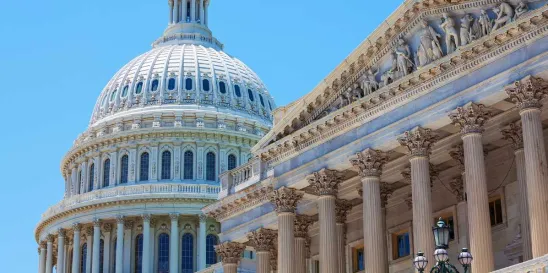Mayor Bowser recently signed into law D.C.’s Wage Transparency Omnibus Amendment of 2023. The new law expands the existing wage transparency law in two important ways. First, in addition to currently prohibiting employers from limiting their employees’ abilities to discuss their compensation, the law now prohibits employers from inquiring about an applicant’s salary history. Second, the new law requires employers to disclose salary ranges for advertised positions. The new law is currently under congressional review, and it will take effect on June 30, 2024, if it is approved by Congress.
With this new law, Washington, D.C. would become the latest in a growing number of jurisdictions that have implemented pay transparency and wage history inquiry laws, including California, Illinois, New York, Maryland, Washington, Hawaii, Rhode Island, Connecticut, Colorado, and cities in New York, New Jersey, and Ohio.
The Law Covers Private Employers with One Employee or More in D.C.
The law defines “employer,” as “an individual, firm, association, or corporation that employs at least one employee in the District.” The law therefore applies broadly to any employer, wherever located, if the employer has even a single employee in D.C. Moreover, the law does not distinguish between full-time and part-time employees. Although the law does not explicitly address employees that only work in D.C. occasionally, employers with employees that spend time working in D.C. (including working remotely) should take note of the law’s requirements.
The Law Implements Four Key Requirements for Employers
1. Employers must provide salary or wage ranges in their job postings. The law requires employers to provide salary or hourly ranges in their job postings. Specifically, employers must include the minimum and maximum projected salary range or hourly pay in all job listings and position descriptions. The range is whatever the employer in good faith believes at the time of the posting it would pay for the advertised job, promotion, or transfer opportunity. Therefore, the law’s requirements apply to both internal and external job postings. The law, however, does not provide insight into whether these requirements apply to a situation where the employer is seeking candidates without advertising for the role – for example, through a private, confidential search (including a search sourced through a recruiter). It appears, therefore, that such private, confidential searches may not be subject to the law.
2. Employers must disclose the existence of healthcare benefits. The law requires that “before their first interview,” employers disclose to prospective employees “the existence of” healthcare benefits that they may receive in the position if hired. The legislative history suggests that employers need only disclose the fact that the employer offers healthcare benefits and not specific details of the coverage provided. While the disclosure does not need to be written into the job posting, employers should consider whether to include it.
3. Employers may not inquire about an applicant’s wage history. The law prohibits inquiries into an applicant’s wage history. Employers are prohibited from screening applicants based on their previous salary or wage history and are also prohibited from requesting or requiring disclosure of the applicant’s salary history as a condition of being interviewed or considered for employment. The law further prohibits employers from seeking an applicant’s wage history from a prior employer.
4. Employers are required to post a notice of rights. The law requires that employers post a notice of rights in a conspicuous place in at least one location where employees congregate. We expect that the Department of Employment Services will provide a sample notice for employers, at some time prior to the law taking effect.
Enforcement of the Law
Importantly, the law does not create a private right of action; instead, the Attorney General may investigate possible violations of the law and bring civil court actions against employers. If the Attorney General prevails in a court action, employers may be liable for damages, statutory penalties, attorneys’ fees and costs, and any other authorized relief.
Further, employers may face fines for violations of the law, including $1,000 for the first violation, $5,000 for the second violation, and $20,000 for each subsequent violation.
Next Steps for Employers
Before June 2024, employers should consider how they will post new roles after the law’s effective date to comply with the law’s requirements, including by determining the factors that will be used to determine the wage ranges. Further, employers should ensure that those involved in the hiring process (including outsourced recruiters) are aware that the law prohibits asking either the applicant or their former employers about wage history. Finally, employers should plan to post the required notice notifying employees of their rights under the law.




 />i
/>i

